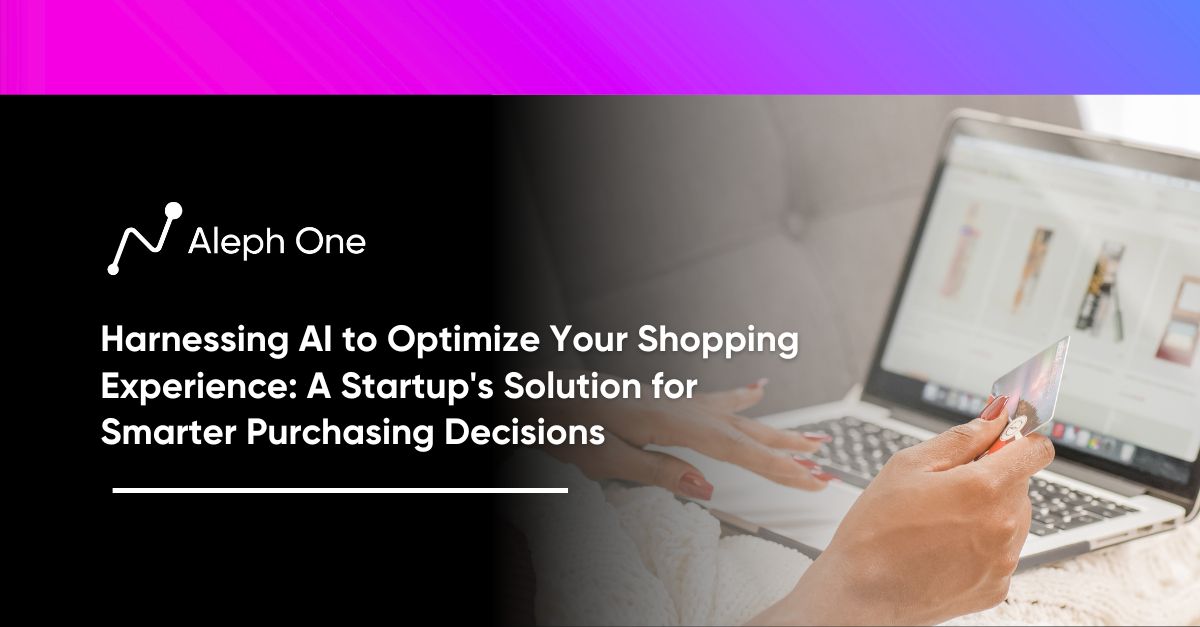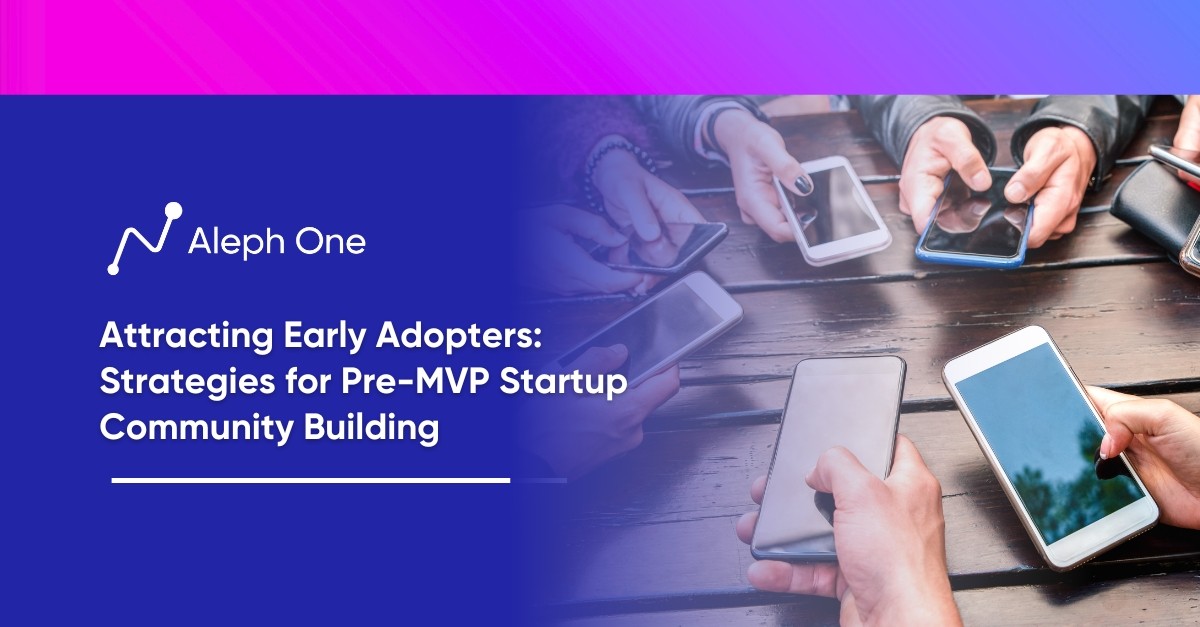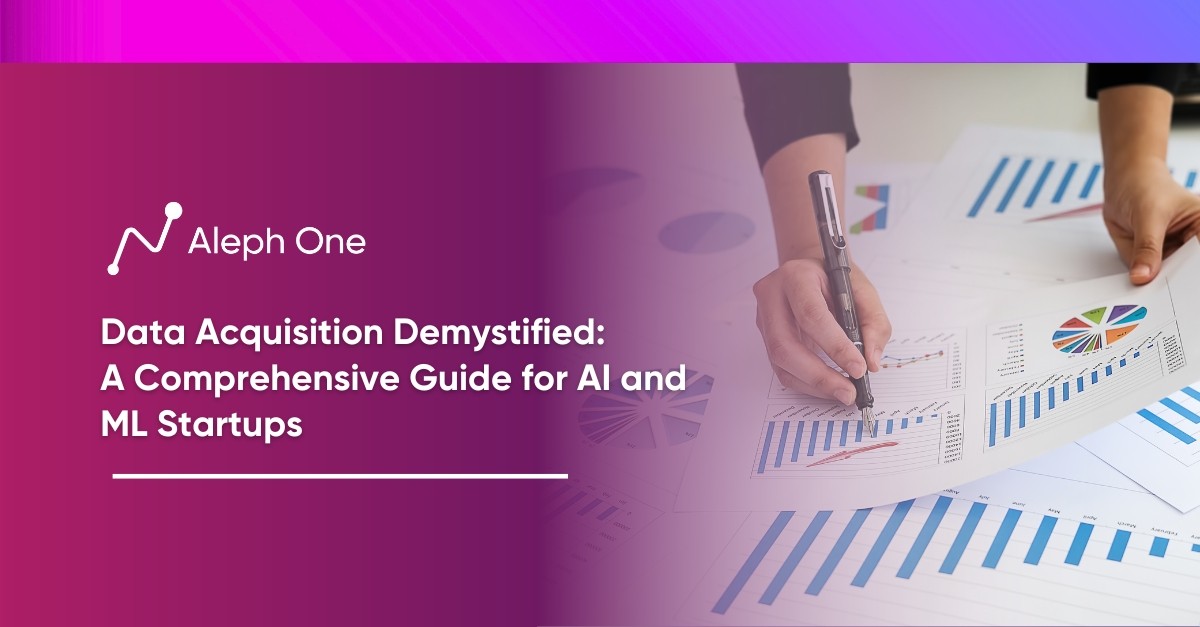Let’s work together to build something amazing. Share your project details and our team will reply to figure out the next steps to your success.

Artificial intelligence (AI) is redefining the retail industry, and startups are at the forefront of this transformation, bringing next-generation AI innovations to retailers. Companies like Anthropic, SoundHound, and Aisera leverage AI to enhance the customer experience, provide personalized support, and enable conversational interactions. These startups are developing technologies such as Constitutional AI, voice assistants, and personalized customer service agents that reshape how customers browse, purchase, and seek assistance. With their focus on AI safety, trustworthiness, and automation, these startups are driving the future of AI in retail, paving the way for automated stores, hyper-personalized experiences, and efficient customer service at scale.

How AI is Personalizing the Customer Journey from Start to Finish
Artificial intelligence is transforming how retailers understand and interact with their customers. AI-powered personalization, in particular, enables retailers to tailor the customer experience to individual needs and preferences. From product recommendations to predictive shopping experiences, AI personalization tools are shaping the customer journey in new ways.
AI and Hyper-Personalization
Leading retailers like Amazon and Netflix rely on AI for hyper-personalized recommendations. Using techniques like collaborative filtering and content-based filtering, these companies can analyze a customer’s past purchases, browsing, and ratings. Amazon’s recommendation engine is estimated to drive 35% of sales on its platform. Netflix saves $1 billion per year in customer retention.
Anticipating Customer’s Shopping Experience
Beyond recommendations, retailers use AI to predict what customers want next and streamline their shopping experiences. Stitch Fix, for instance, leverages AI to curate personalized outfits for each client based on their style profile and feedback. Walmart’s Intelligent Retail Lab is testing an AI-powered store that uses facial recognition and sensors to detect what customers pick up and automatically charge them as they walk out—no checkout needed.
Streamlined Shopping Experiences
These predictive and streamlined shopping experiences powered by AI are the future of retail personalization. A report by McKinsey found that retailers who leverage AI for personalization can increase sales by up to 15% and lower churn rates by up to 20%. Customers also appreciate personalization, with 80% of consumers saying they are more likely to shop with brands that tailor experiences to their needs.
Data and AI Personalization
AI personalization does require significant data to be effective. Retailers need detailed information about customer interactions, purchases, and preferences to train their machine-learning models. They also need large amounts of product data to match customers with relevant recommendations. Retailers that have successfully deployed AI for personalization at scale tend to have vast amounts of customer and product data—like Amazon, Walmart, and Target.
Focusing on product recommendations and predictive shopping for loyal customer segments is an excellent first step for retailers looking to get started with AI personalization. As models are refined with more data, personalization can be expanded to more customers and new use cases. The future of retail will be defined by how well companies can leverage AI to create uniquely tailored experiences for each shopper. Personalization at scale is the key to customer loyalty and business growth.
The Rise of AI-Powered Chatbots and Voice Assistants in Retail
Retailers are increasingly deploying chatbots and voice assistants to enhance customer experience. Sephora introduced a chatbot on Facebook Messenger in 2016 to provide customers with personalized beauty tips and product recommendations. The chatbot taps into Sephora’s customer data to understand each shopper’s needs and preferences. This allows it to offer tailored responses and product suggestions that resonate with the customer. Since launching, Sephora’s chatbot has handled over 1.5 million customer conversations.
Voice Assistants
Voice assistants built by Anthropic and SoundHound are also gaining popularity with retailers. The assistants can handle a variety of customer service and sales tasks like answering product questions, facilitating purchases, and managing returns or refunds through voice commands. For example, customers can say “I want to buy a red dress for under $100,” and the voice assistant will provide options that match the criteria. If the customer selects a product, the assistant can guide them through completing the purchase using their voice.
Conversational AI
Conversational AI is fast becoming a preferred way for customers to engage with brands. A recent study found that nearly 50% of customers prefer to message a chatbot for simple inquiries versus calling a company’s customer service line. The increased adoption of chatbots and voice assistants in retail drives more conversational commerce, where customers can buy products or get service through natural dialogue with an AI system.
The Benefits of Chatbots and Voice Assistants
Retailers deploying conversational AI are seeing benefits like improved customer satisfaction, increased sales, and lower operational costs. Chatbots and voice assistants provide a convenient self-service option for customers to get answers or purchase anytime. They are available 24/7 and eliminate wait times. Conversational AI generates new sales opportunities by proactively engaging customers and recommending relevant products.
With advancements in natural language processing, chatbots and voice assistants will become far more sophisticated in the coming years. Retailers implementing conversational AI will now gain valuable experience optimizing the customer experience. As AI transforms retail, they will also build new capabilities as a key competitive advantage.
How AI has Transformed Retail Pricing and Promotion Strategies
AI has enabled retailers to optimize pricing and promotions through techniques like dynamic pricing. With AI, retailers can adjust prices in real time based on factors like demand, seasonality, and competitor pricing. For example, Amazon leverages AI to tweak product prices to maximize sales frequently. According to a study, Amazon changes its prices 2.5 million times daily. Similarly, Walmart uses AI to offer personalized promotions to customers based on their purchase history and interests.
Retailers Can Develop Data-driven Pricing
With AI, retailers no longer rely on generic, static pricing models. They can develop data-driven pricing and promotion strategies tailored to specific products, locations, and customer segments. AI tools can analyze huge volumes of data on past transactions, demand forecasts, and external factors like weather to determine optimal prices. They can identify how customers will respond to different prices and which price points will maximize revenue and profit margins.
AI has Enabled More Targeted Promotions
Retailers can use AI to determine which customers will be most receptive to promotions for specific products. They can craft personalized promotions and discounts to influence customers at the optimal time in their buying journey. With predictive analytics, retailers can determine the likelihood of customers purchasing a product with and without promotion, allowing them to design highly effective promotional campaigns.
AI-Optimized Pricing Can Increase Profit Margins
According to reports, AI-optimized pricing can increase profit margins by 3-5% and sometimes up to 10%. Personalized promotions driven by AI can lift sales by 10-30% while reducing promotional costs. It’s no wonder that most retailers plan to adopt AI for pricing and promotions within the next three years. AI has transformed pricing and promotions from a guessing game to a science, giving retailers a competitive edge with strategic, data-driven strategies.
In today’s retail environment, where margins are tight, AI-powered pricing and promotions can mean the difference between success and failure. Overall, AI has revolutionized how retailers can maximize the impact of their pricing and promotional investments.
AI-Driven Customer Insights: Mining Valuable Intelligence from Customer Data
Retailers today can access customer data from customer reviews, feedback, social media, and loyalty programs. AI has become instrumental for retailers to gain valuable insights from this data to understand their customers better. Using natural language processing (NLP) and machine learning, retailers can analyze customer sentiments, identify key trends, and uncover actionable insights to shape future product and marketing strategies.
Sephora – Voice-Based AI Insight Platform
For example, Sephora, a leading beauty retailer, launched a voice-based AI insight platform that analyzes customer reviews and feedback to identify opportunities to improve customer experience. The AI studies common themes and sentiments in customer comments to detect areas of dissatisfaction. Sephora has used insights from the AI to make changes to their loyalty program and in-store experiences, which have led to higher customer satisfaction scores.
Stitch Fix – Machine Learning to Analyze Customer Reviews
Fashion retailer Stitch Fix taps into machine learning algorithms to analyze customer reviews, feedback, and notes from stylists. The AI looks for patterns in customer preferences, reactions to products, and common attributes of highly rated products. These insights help Stitch Fix make data-driven decisions on new products to source and recommend products that customers are highly likely to keep. Through AI-powered insights, Stitch Fix has achieved high customer satisfaction and retention rates.
Monitory Conversations Across Social Networks
With the growing popularity of social media, retailers have a wealth of customer data on platforms like Facebook, Instagram, and Twitter. AI enables retailers to monitor customer conversations across social networks to gain valuable insights into how customers view the brand and their interests. For example, outdoor apparel retailer The North Face uses an AI-based social listening tool to analyze customer posts on social media. The tool detects customer sentiments towards new products, influencers that customers follow, as well as trends in destinations and activities. These insights help The North Face make strategic decisions on product designs, brand collaborations, and marketing campaigns tailored to customer interests.
AI has allowed retailers to tap into rich customer data sources to uncover insights that drive innovation. With AI continuing to advance rapidly, retailers will have access to even more powerful tools to understand their customers and build the experiences that keep them coming back. The future of retail will depend on how well retailers can harness AI to gain a 360-degree view of their customers.
The Future of AI in Retail: Trends and Predictions from Industry Leaders
AI has already transformed the retail industry in many ways. However, according to experts, the technology is still in its infancy. In the next 3 to 5 years, AI is predicted to usher in innovations that will significantly enhance customer experience and streamline retail operations.
Hyper-Personalized Experiences
Retailers will leverage AI to offer hyper-personalized experiences tailored to individual customers. Algorithms will analyze a customer’s purchase history, preferences, and online behavior to curate a personalized product selection, custom promotions, and targeted marketing campaigns. “AI will allow retailers to create intensely personalized experiences that feel like they were designed just for you,” says Chris Nicholson, CEO of Anthropic.
Automated Stores with No Checkout Counters
Retailers will deploy AI to operate automated stores that require no human employees. Customers will enter the store, pick up their items, and leave without stopping at a checkout counter. AI systems with sensors and computer vision will automatically detect the products customers pick up and charge for. Amazon has opened several Amazon Go automated stores, and more retailers will likely follow suit. “The retail store as we know it today will be unrecognizable in the next five years thanks to AI,” says Kumar Srivastava, Chief Data Scientist at Anthropic.
Personalized Pricing Based on External Factors
Retailers will use AI to adjust product pricing in real-time based on customer demand and external factors like weather, traffic, and local events. AI will determine the optimal price for each product to maximize revenue and match customer willingness to pay. Personalized pricing strategies will replace the traditional fixed pricing models used by most retailers today. “AI allows retailers to take a customized, customer-centric approach to pricing that was nearly impossible with human employees alone,” explains Nicholson.
Industry leaders predict that AI will drive significant innovations in hyper-personalized experiences, automated stores, and real-time personalized pricing over the next several years. These technologies will transform the retail experience for customers and optimize operations for retailers in groundbreaking ways. While AI in retail is still emerging, these trends highlight how AI may shape the future of shopping.
Meet the Startups Bringing Next-Gen AI Innovations to Retailers
Several startups are pushing the boundaries of AI in retail with innovative solutions that are transforming the customer experience. Anthropic, an AI safety startup, has developed Constitutional AI techniques to build conversational agents that are helpful, harmless, and honest. Their AI assistants power voice and chat experiences for major retailers like Lowe’s, Anthropologie, and DICK’s Sporting Goods. Anthropic has raised $8 million to improve AI safety in retail and beyond. “We want to enable trustworthy AI that enhances the customer experience while respecting privacy and security,” says Dario Amodei, Anthropic’s CEO.
SoundHound – Voice Assistant Solution for Retailers
SoundHound, a voice AI platform, provides Houndify, a voice assistant solution used by retailers like Kohl’s and Pizza Hut. With Houndify, customers can use voice commands to browse products, make purchases, track orders, and more. SoundHound has raised $336 million to expand its retail partnerships and multilingual voice AI capabilities. “Voice is the most natural way for humans to interact, and it will transform how customers engage with brands,” says Keyvan Mohajer, SoundHound’s CEO.
Austin-based AI startup Aisera uses machine learning to build personalized retailer customer service agents. Their AI agents handle customer queries across multiple channels like email, chat, and voice. Aisera’s clients include Best Buy, CVS and Neiman Marcus. The startup has raised $50 million to enhance AI automation in customer service. “AI will reinvent customer service, providing personalized support at scale while reducing costs,” says Muddu Sudhakar, Aisera’s CEO.
AI is the Future for Startups
These startups are paving the way for the future of AI in retail with innovations transforming how customers browse, buy and get support. With continued progress, AI may soon power everything from automated stores to hyper-personalized experiences in the retail industry.
FAQ
What kind of metrics and KPIs should retailers monitor to assess the effectiveness of their AI personalization strategies?
Retailers should monitor various metrics and KPIs when assessing the effectiveness of AI personalization strategies. Some of the most relevant ones include sales growth, customer acquisition rates, customer retention or churn rates, and customer satisfaction scores. Looking at the average basket size (the number of items customers purchase per visit) and repeat purchase rates can also be useful indicators of personalization success. Additionally, retailers should measure the performance of specific AI-driven initiatives, such as the click-through rates or conversion rates for personalized product recommendations or emails.
How should retailers approach customer privacy and data security while implementing chatbots and voice assistants?
Customer privacy and data security are paramount concerns for retailers implementing chatbots and voice assistants. Retailers should ensure their AI technologies comply with all relevant data protection laws and standards, such as the GDPR or CCPA. They should also be transparent with customers about how their data is used and collected. This should include clear, understandable privacy policies and opt-out options for those who do not want their data used for personalization. As much as possible, AI systems should use anonymized data that cannot be tied back to individual customers. And lastly, implementing robust data security measures—like encryption and frequent security audits—is critical for protecting customer data from breaches.
How can small retailers with limited budgets get started with AI for pricing and promotions?
Small retailers with limited budgets can still take steps to leverage AI for pricing and promotions. One of the most cost-effective ways to get started is using AI-powered tools and platforms that offer scalable pricing based on your business size and needs. Many such tools are available today, some even specifically designed for small businesses. Retailers can start by applying AI to a small segment of their products or customers to see the impact before scaling up. Another strategy is to prioritize AI investments that have a clear, direct impact on revenue—like dynamic pricing or personalized promotions. This can help justify the costs and ensure a return on investment.
Get the latest news and updates from Aleph One in your inbox.



